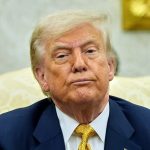
Investing.com — Donald Trump’s return to the White House is expected to be a “modest positive” for the biopharma sector, according to BMO Capital Markets analysts.
However, one concern in this context is related to the potential appointment of Robert F. Kennedy, Jr. to a significant healthcare role due to his previous anti-vaccine statements.
“We believe this to be the biggest X factor, as this twist has been a relatively new update to a Trump administration,” BMO analysts led by Evan David Seigerman said in a note. “However, we need to see who actually runs key health administrations.”
According to BMO, a Trump victory, which has been called by the Associated Press on Wednesday, is likely to result in a net positive outcome for the BioPharma sector.
Analysts believethat the Inflation Reduction Act (IRA) will not be expanded and that Federal Trade Commission (FTC) interventions will decrease. Furthermore, corporate taxes are expected to remain low or increase only marginally, and there is a possibility, though not a certainty, for some Pharmacy Benefit Manager (PBM) reform.
“If Trump opted for a more populist agenda, we could see continued pressure on drug pricing, or at a minimum keeping the status quo with the current IRA negotiations,” analysts continued.
“We’re shying away from stock-specific beneficiaries in this note, as the entire sector is likely to benefit with this election outcome.”
The report also highlights the potential benefits for larger-cap BioPharma companies and small to mid-cap firms in the event of decreased FTC oversight. With less political scrutiny anticipated under Trump’s leadership, the market may see an increase in mergers and acquisitions activity.
BMO’s team suggests that Trump’s focus on issues like immigration and tariffs is more likely than a push to regulate M&A transactions within the United States.
Looking ahead, the firm discusses the implications of the continuation or expansion of the 2017 Tax Cut and Jobs Act, which is set to expire in 2025.
Specifically, it suggests that while significant tax rate increases for corporations or individuals are unlikely, extending the tax cuts may require spending reductions in other areas. Trump’s stance on tariffs could also lead to increased costs across various sectors.
Lastly, analysts also points out other considerations, such as the BioSecure Act, which might see progress due to Trump’s previous remarks on China, and the unlikelihood of any action on march-in rights for pharmaceutical patents.






